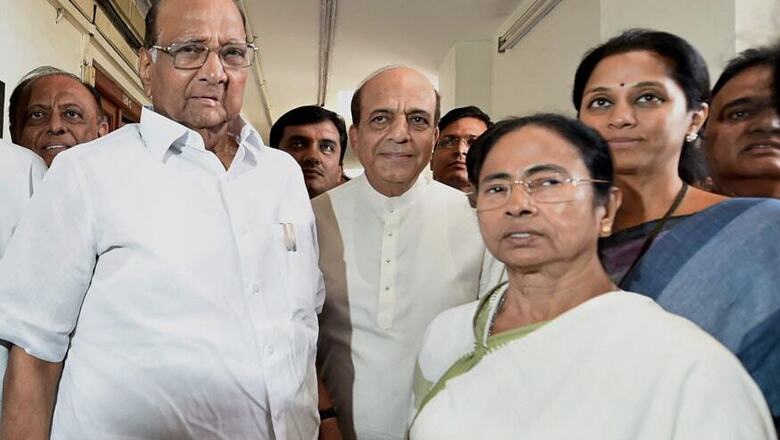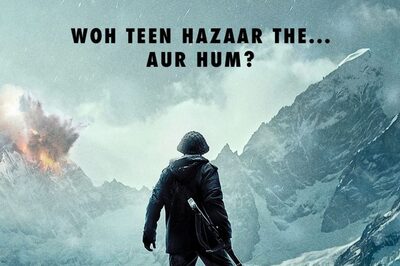
views
New Delhi: West Bengal Chief Minister Mamata Banerjee mooted a coalition of sorts led by “strongest regional party” in each state in a bid to build a credible challenge to the BJP in the run-up to the next general elections.
The Trinamool Leader, who is on a three-day visit to Delhi, told reporters that “the strongest regional parties should be supported by others (minor players) so that there is a one-on-one contest against the BJP everywhere”.
The proposal indirectly puts onus on the Congress to pave the way and support dominant regional players in 2019 general elections.
Mamata Banerjee met a host of opposition leaders in Parliament on Tuesday, including MPs from TDP, TRS, RJD and BJD. She also had a meeting with some NDA allies like Shiv Sena.
TMC leader’s prescription seems to have emanated from outcome of recent Uttar Pradesh bypoll results, as opposition parties are now looking at an alternative strategy to knit state-specific alliances for 2019 Lok Sabha elections instead of building a grand national coalition against the Bharatiya Janata Party (BJP).
And the SP-BSP experiment could serve as the template for the anti-BJP mobilisation in the days ahead, prompting opposition parties to de-centralise Lok Sabha elections to avoid a direct 'Modi Vs Others' contest which tends to suit the BJP.
The signs of the changing algorithm were apparent in the understanding reached between the Samajwadi Party, BSP and the Congress in the last one month.
“If Akhilesh Yadav and Mayawati stay together nothing can beat them. Let them together call a meeting in Lucknow and we will all go,” Mamata Banerjee told reporters in Parliament.
In the Gorakhpur and Phulpur bypolls in Uttar Pradesh, while the SP-BSP joined hands to take on the BJP, the Congress fielded its candidates in both seats to dent the saffron party’s prospects in the urban and upper caste constituency. The decision to field candidates is borne out of empirical evidence in the last Assembly elections indicating the BJP benefitting from the Congress' absence as the two parties share mutually inclusive voters.
A ‘Modi vs Others’ fight at the national level can easily help the BJP gloss over anti-incumbency in states where the party is in power. Second, a direct contest — to the advantage of the BJP — has a high probability of engendering a polarised polity.
The regional leaders are also reluctant to hand over power on platter to the Congress party - especially its new president Rahul Gandhi - this time around. Mamata also made it clear that she has no plans to meet Congress president Rahul Gandhi during her stay in Delhi.



















Comments
0 comment